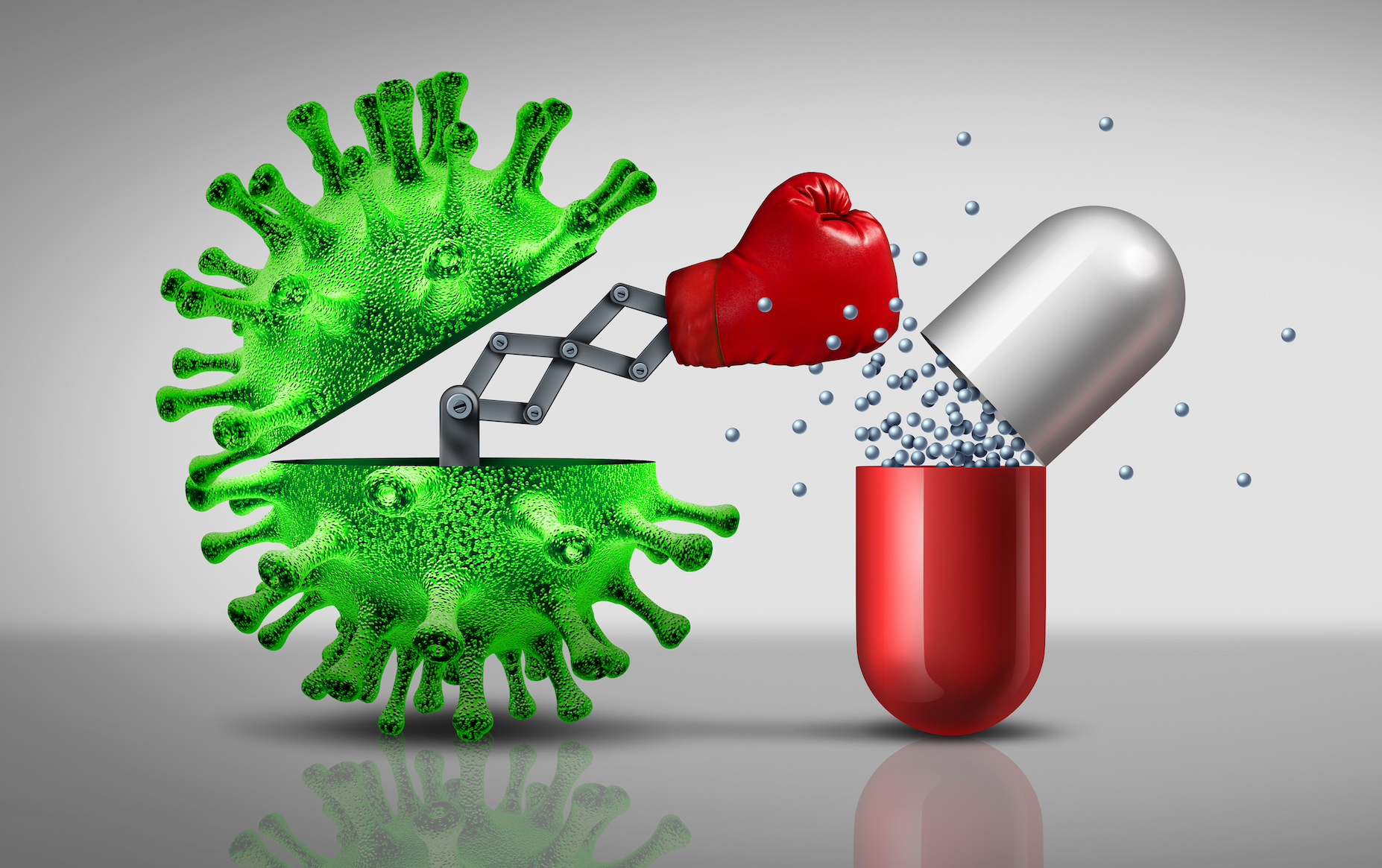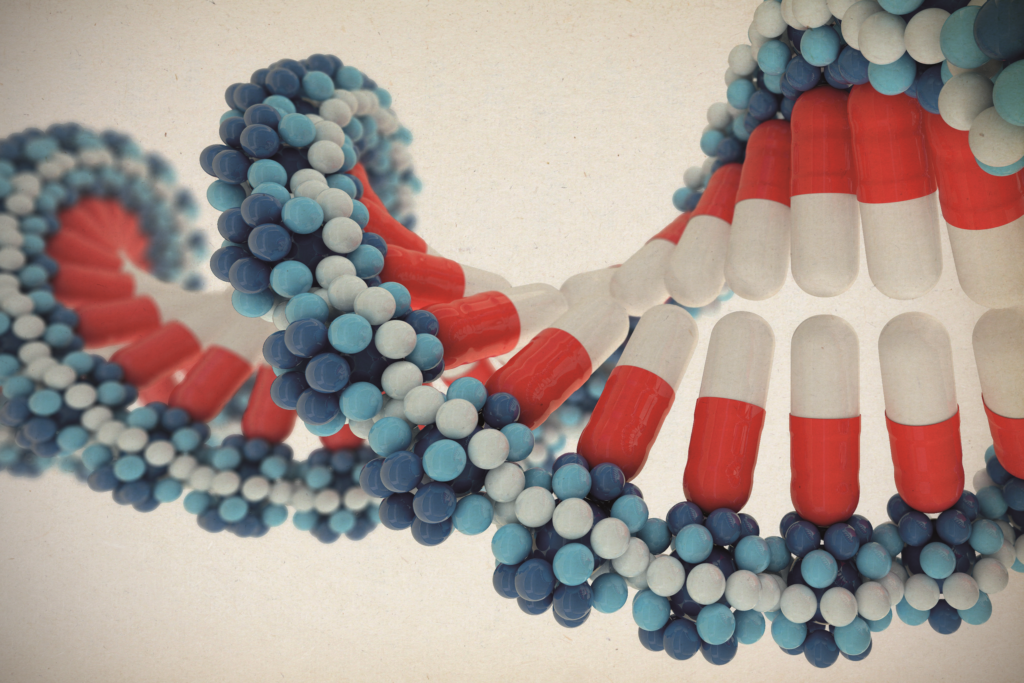Genetic variation plays a crucial role in how individuals respond to drug therapies. The field of pharmacogenomics focuses on how genetic differences influence an individual’s response to medications, leading to variable drug effects. This blog delves into the intricate relationship between genetic variation and drug response, shedding light on the mechanisms underlying this phenomenon.
Genetic Diversity and Drug Resistance
Recent research has highlighted the impact of genetic diversity on the evolution of drug resistance. Studies using budding yeast populations with diverse genomes have shown that high genetic diversity can prime cells for adaptive mutations, leading to antimicrobial resistance. By sequencing genomes and analysing mutations, researchers have identified driver mutations that confer resistance, with some mutations requiring specific genetic backgrounds for optimal resistance development.
Pharmacogenomics and Variable Drug Responses
Pharmacogenomics explores how genetic variations influence individual responses to drug therapy. By analysing genetic variants that modulate protein function, researchers can uncover mechanisms that affect drug response. Non-synonymous DNA variants altering protein function and non-coding variants influencing gene expression are key factors in variable drug responses. Additionally, contemporary genomics has revealed epigenetic changes and small RNAs as potential regulators of gene function impacting drug response.
Heritability Studies and Drug Responses
Heritability studies in families provide insights into the extent of genetic influence on drug responses. By quantifying drug responses in healthy family members, researchers can estimate heritability levels for specific drugs. Twin studies have demonstrated significant variability in drug responses within dizygotic twins compared to monozygotic twins, indicating a strong genetic component in drug actions. These studies help elucidate the heritable aspects of variability in drug response.
Experimental Approaches in Pharmacogenetics
Experimental approaches in pharmacogenetics focus on identifying mechanisms underlying variable drug concentrations and effects. By studying candidate genes related to drug uptake, metabolism, or elimination, researchers can uncover genetic contributors to variable drug responses. Genome-wide association studies (GWAS) have been instrumental in identifying relationships between genetic variants and drug responses, offering insights into personalised medicine approaches.
What is genetic variation and how does it affect drug response ?
Genetic variation refers to differences in DNA sequences among individuals, which can impact how they respond to medications. These genetic differences influence how well the body processes drugs, leading to variable drug responses. Here’s how genetic variation affects drug response:
- Enzyme Function: Genetic variations can affect the activity of enzymes responsible for metabolising drugs in the liver. For example, variations in genes like CYP2C19 can impact the metabolism of drugs like Plavix (clopidogrel), leading to reduced effectiveness in preventing heart attacks and strokes. Understanding these genetic differences allows for personalised dosing or alternative medication choices to optimise treatment outcomes.
- Thiopurine Metabolism: Children with leukaemia are commonly tested for genetic variations related to thiopurine metabolism. Variations in genes affecting thiopurine metabolism can influence the dosage needed for effective treatment. By identifying these genetic differences, healthcare providers can tailor dosages to ensure optimal therapeutic benefits while minimising side effects.
- Pharmacogenomics: Pharmacogenomics explores how genetic variations impact individual responses to drug therapy. By analysing genetic variants that affect protein function or gene expression, researchers can uncover mechanisms influencing drug response variability. This field aims to personalise medicine by using genetic information to guide drug selection and dosing for better treatment outcomes.
- Heritability Studies: Studies in families help quantify the extent of genetic influence on drug responses. By assessing drug responses in healthy family members, researchers estimate heritability levels for specific drugs. Twin studies have shown significant variability in drug responses within dizygotic twins compared to monozygotic twins, indicating a strong genetic component in drug actions.
- Clinical Implementation: Initiatives like the Clinical Pharmacogenetics Implementation Consortium (CPIC) provide guidelines on utilising genetic information for personalised medicine. CPIC members evaluate gene variants and their effects on drug processing, categorising evidence levels and recommending testing before prescribing certain medications. These guidelines aid clinicians in making informed decisions based on patients’ genetic profiles
How can genetic testing be used to predict drug response ?
Genetic testing can be used to predict drug response by analysing genetic variants that influence how the body processes medications. Here’s how genetic testing can be utilised for this purpose:
- Pharmacogenomic Biomarkers: Genetic testing can identify pharmacogenomic biomarkers that predict how an individual will respond to specific drugs. By looking for variations within genes related to drug metabolism, transport, or targets, genetic testing can provide insights into how drugs interact with the body at a molecular level. This information helps healthcare providers tailor medication choices and dosages based on an individual’s genetic profile, leading to more personalised and effective treatment outcomes.
- Personalised Medicine: Genetic testing allows for personalised medicine approaches by considering an individual’s genetic makeup to predict drug responses. By analysing genetic variants that affect drug metabolism and efficacy, healthcare providers can optimise treatment plans to suit each patient’s unique genetic characteristics. This tailored approach aims to enhance therapeutic outcomes while minimising adverse effects, improving overall patient care.
- Pharmacogenomic Testing: Pharmacogenomic testing involves looking for genetic variations that influence how the body responds to medications. These tests can predict how well a person’s liver breaks down drugs, how quickly they metabolise certain medications, and whether they are likely to experience side effects or poor responses to specific drugs. By incorporating genetic information into treatment decisions, healthcare providers can offer more precise dosing and medication choices tailored to individual genetic profiles.
- Future Applications: The future of genetic testing for drug response holds promise in providing rapid and automated screening of genetic variants to predict individual responses to medications. Advances in technology may enable quick testing of saliva samples in clinical settings before prescribing drugs, leading to more personalised medicine approaches based on an individual’s drug-response genotype profile. Ethical considerations regarding data management, privacy, and the interpretation of genetic information will be crucial as genetic testing becomes more integrated into healthcare practices
Conclusion :
In conclusion, genetic variation significantly influences how individuals respond to drug therapies, shaping variable drug effects. Understanding this intricate relationship between genetic diversity and drug responses is pivotal for advancing pharmacogenomics. Recent research underscores the impact of genetic diversity on drug resistance evolution, while pharmacogenomics delves into how genetic variations modulate individual responses to medications. Heritability studies and experimental approaches further illuminate the genetic underpinnings of variable drug responses. By integrating genetic testing into clinical practice, personalised medicine approaches can enhance treatment outcomes while minimising adverse effects, heralding a new era of precision medicine.
Citations:
[1] https://www.pnas.org/doi/10.1073/pnas.2019060118
[2] https://www.ncbi.nlm.nih.gov/pmc/articles/PMC3093198/
[3] http://onlinelibrary.wiley.com/doi/10.1111/j.1528-1167.2005.00356.x/pdf?origin=publication_detail
[4] https://www.sanger.ac.uk/news_item/yeast-spotlights-genetic-variation-s-link-drug-resistance/
[5] https://www.sciencedirect.com/topics/medicine-and-dentistry/genomic-epidemiology




